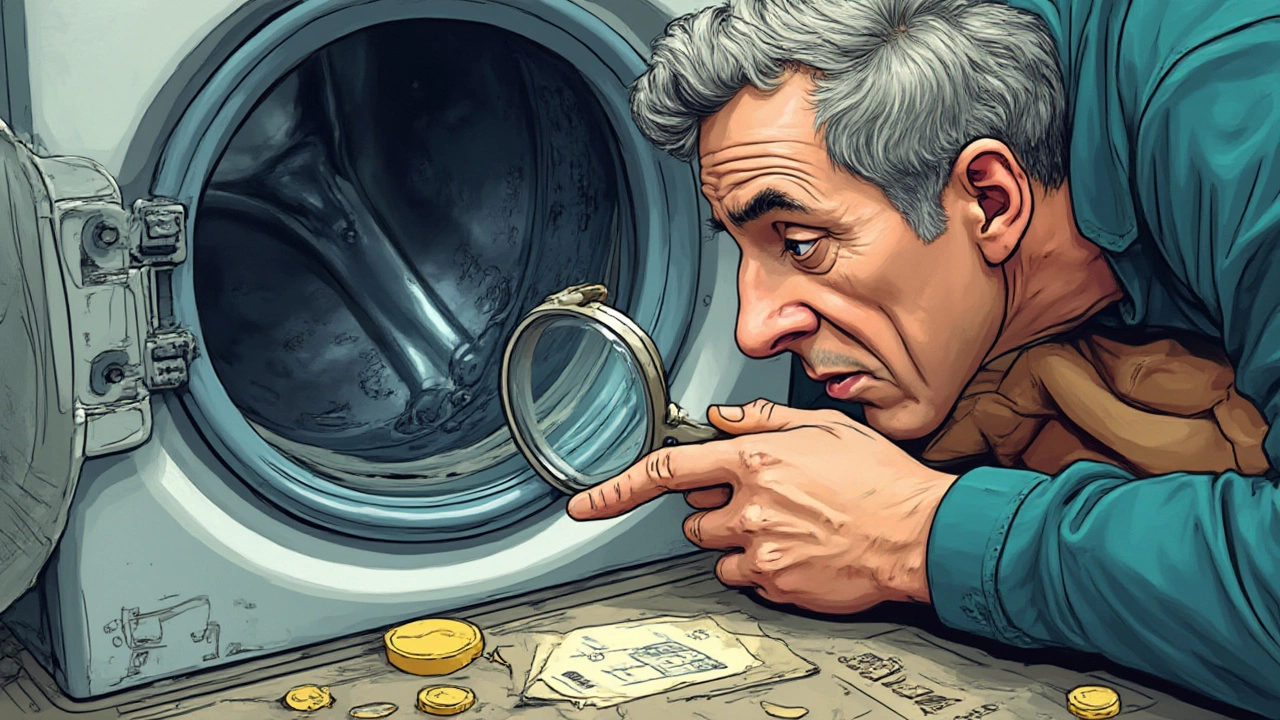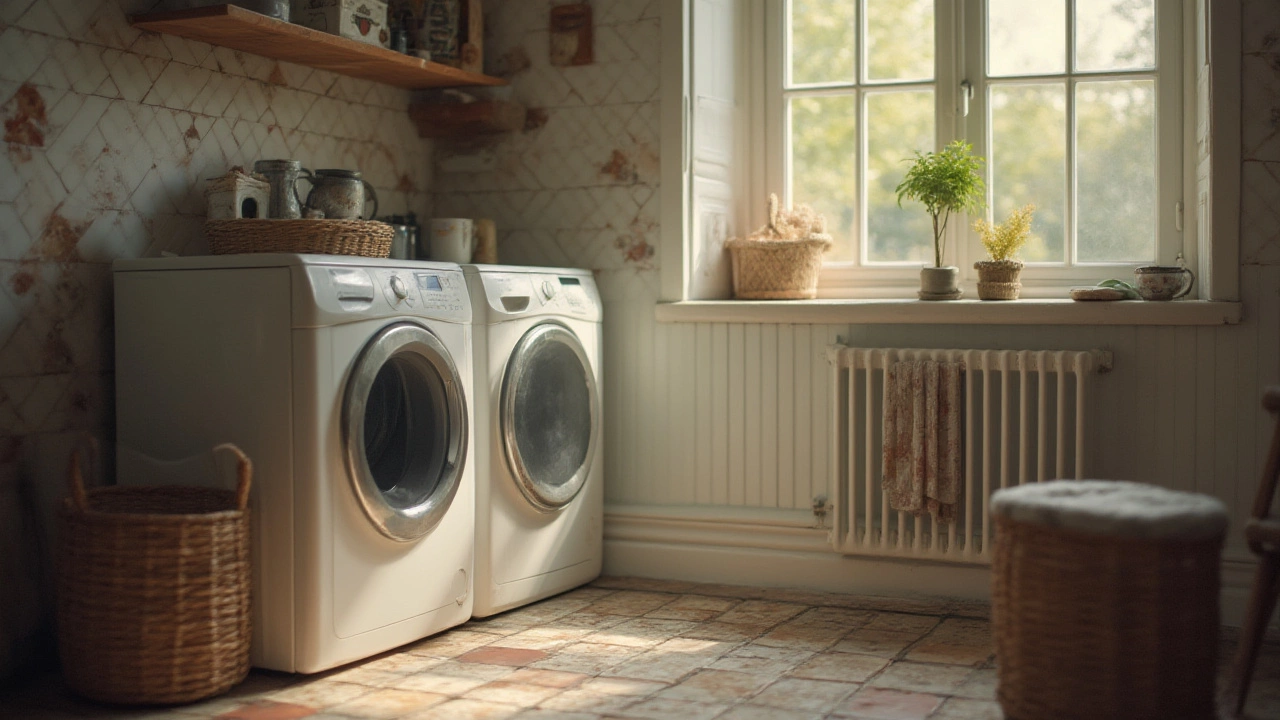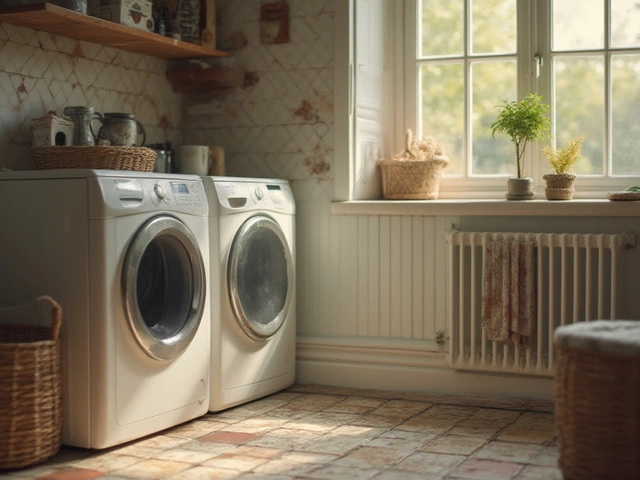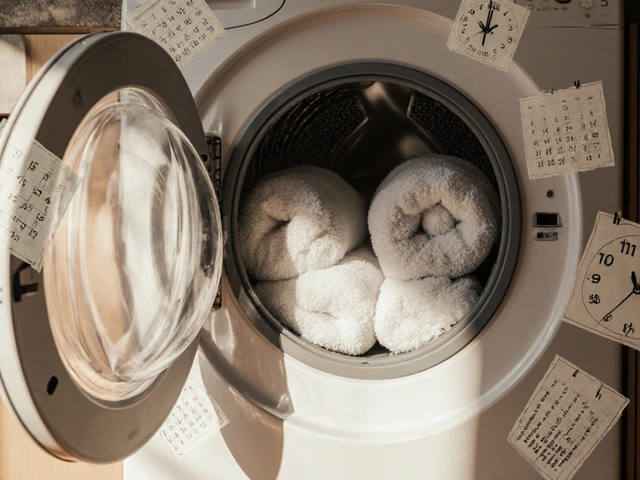Start poking around the laundry room and you’ll find an appliance doing more heavy lifting than it ever gets credit for. Some folks are strangely sentimental about their washing machines—a bit wild, considering they eat coins, chew socks, and one day decide to add an exciting water park feature to your kitchen floor. But ask around your neighbourhood in Bristol, or just your family, and you’ll get wildly different takes on when a washing machine is "old." Some think it's ancient at five years; others cling to their trusty Indesit long past a decade, stubborn as ever. So, when is a washing machine actually considered old? The answer's not just about years—it's about use, care, and how much you really want to gamble with damp work shirts come Monday morning.
How Long Should a Washing Machine Really Last?
Most washing machines sold in the UK—whether you’re eyeing up a Bosch or keeping a keen eye on a secondhand Zanussi—are designed with a certain lifespan in mind. Data shows the average lifespan sits somewhere between 8 and 12 years. The difference, not surprisingly, comes down to how you use it. Put simply: a family of five with muddy sports gear will run through washers quicker than a solo flat-dweller who only washes on Sundays. According to Which? surveys from last year, many people are now lucky to reach the 10-year mark. This isn’t just marketing devilry—washing machines today have more digital parts, thinner plastics, and complex eco-cycles that sometimes outsmart themselves.
Here's what’s typical for common brands:
| Brand | Expected Lifespan (years) |
|---|---|
| Miele | 15-20 |
| Bosch | 10-12 |
| Hotpoint | 8-10 |
| Indesit | 8-10 |
| Beko | 7-10 |
But lifespan isn't just brand. It's cycles per week, quality of incoming water, and whether you actually follow those little cleaning instructions tucked behind the detergent tray. If your machine is closer to 10 than 5 and it squeaks or limps through spin cycles, you’re likely entering what repair pros call "the breakdown era." You can stave it off for a while but only up to a point. So if you’re thinking, “My gran had her Hoover for 25 years”—there’s no shame in admitting they don't make 'em like that anymore.
Common Signs Your Washing Machine Is Getting Old
Some washing machines develop quirks and still get the job done, but there are signs when "old" means more than just your machine’s birthday. One reliable hint: does it sound like a helicopter is about to land when it spins? Grinding, whining, or extra thumping noises weren't built in for excitement. Worn bearings, a loose drum, or a tired motor all become clear with age. Leaks, strange smells that don’t disappear after a deep clean, and cycles that never quite finish are all classic red flags. If you find yourself opening the door only to meet a puddle or wringing out clothes that refuse to spin dry, there’s your warning signal.
Some technical clues are sneakier. Modern machines will flash error codes you can find in your manual—if you haven’t already used it for kindling. Occasional breakdowns are normal for older appliances, but if you see repeated issues like the machine not draining, failing to take in water, or it refuses to start at all, those are textbook symptoms of an appliance reaching frostier years. Persistent electrical faults are a worrying sign, too. Repairs can be hit and miss: maybe you spend £120 replacing a pump, only for the heating element to break two months later. That's when repair costs start chasing the price of a new washer.
Have a look at your utility bills if you’re really curious. Efficiency drops with age—an old washer will start using more water and electricity. If you notice a bump in the monthly costs and your machine is already in its golden years, that old appliance might be costing you more than you think. Water stains, lingering mildew, or repeated uneven loads only add up. So pay attention to the details—machines often tell you they’re tired if you listen.

Is It Worth Repairing or Should You Replace?
This debate drags on in every family group chat: patch it up or splash out on a new one? There’s a rule of thumb that’s surprisingly useful: if repair costs are more than half the price of a new washing machine, replacement often makes more sense. That’s especially the case once the unit’s nudged past the 8-year point. Older models are also less efficient and often lack new safety features that can protect against leaks or electrical faults—a big deal if you live in a busy household.
But not every repair is a deal breaker. Door seals, hoses, and even pumps can sometimes be swapped out with minimal fuss and a few screws. Check warranty status if your washer is under six years old—manufacturer parts are sometimes covered, even if you’re outside the original purchase guarantee. For machines between six and ten years, practical fixes are often possible, but it's really a cost-benefit toss-up. Are you shelling out repeatedly for new parts, or is this just the first hiccup in years?
Environmental impact matters, too. Repairing keeps machines out of skips and landfills, and that feels good—until endless callouts leave you with a Frankenstein’s monster of mismatched parts and escalating repair bills. With newer washers, you get lower water usage, better spin speeds, and improved energy efficiency. New "eco bubble" models can cut power use by up to 40%. Calculate: if your old Hotpoint rattles past 12 years and gobbles double the energy of a new one, that’s hitting you twice—on bills and repair costs.
- Calculate the age of your machine: check the serial number or look up the model online. Some brands hide a date code behind the door or on the back.
- Review recent repair bills. Two or more major fixes in one year suggest it’s on its last legs.
- Assess noise, leaks, and energy use. Persistent problems signal replacement time.
- Compare new models: A-rated washers can use 40% less energy than 10-year-old models.
If you fancy tinkering, swapping filters and checking hoses can extend a washer's life. But when repairs pile up, the maths often says it’s better—financially and for your sanity—to cut your losses and get a new machine.
Tips to Make Your Washing Machine Last Longer
You don’t have to be an engineer to squeeze a few extra years out of your trusty washer. One of the best tricks—run fewer, fuller loads. Every single cycle puts wear on the drum, bearings, and the heating element. Pack the drum, but don’t squash your clothes or you’ll strain the motor and get half-washed socks. The sweet spot is three-quarters full. Hot washes are great now and then for hygiene but avoid cranking the dial to 90°C except to clear out drum gunk. Regular cycles at 30°C save bills and the planet, and they go easier on your machine’s insides.
Cleaning is key. Detergent residue and fluff can turn the drawer and seals into a science experiment. Pull out the drawer and hose it down once a month. Give the rubber door seal a good wipe, too. Mould thrives there, especially if you often wash on cold. Every month, run an empty cycle with hot water and a little vinegar or a washing machine cleaner. This slices limescale and keeps smells at bay.
If you’re dealing with Bristol's hard water, fight the limescale. Limescale can clog the heating element and shorten its life, so stick a water softener sachet in the drum every few weeks, or use a descaler recommended by your washer’s manual. Balance the load: washing one heavy towel with a few socks shakes things up and wears out the bearings. Try to mix light and heavy items to keep the drum running smooth.
Watch out for coins, hairpins, and other pocket gremlins—metallic objects can wreck a washer in moments. Get in the habit of checking pockets before tossing in clothes. And don’t ignore strange noises; most major breakdowns start with minor sounds that, left unchecked, balloon into expensive fixes.
Finally, vent the door after each wash. Letting the seal dry out means less mould, less smell, and a fresher drum every time. Small habits here save you big money in repairs and let your washer live a little longer.
Staring down your machine with the big question—keep fixing or finally replace it—boils down to this: balance what you pay, what you risk, and how much you value dry socks and calm Monday mornings. Washing machines aren’t immortal, but with smart use and a little TLC, you can give yours the best shot at a long, useful life.




